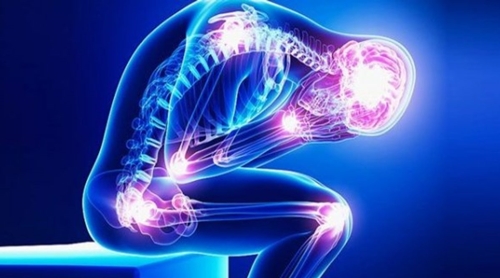Fibromyalgia
|
Fibromyalgia is a disorder characterized by widespread musculoskeletal pain accompanied by fatigue, sleep, memory and mood issues. Researchers believe that fibromyalgia amplifies painful sensations by affecting the way your brain processes pain signals.
Women are more likely to develop fibromyalgia than are men. Many people who have fibromyalgia also have tension headaches, temporomandibular joint (TMJ) disorders, irritable bowel syndrome, anxiety and depression. While there is no cure for fibromyalgia, a variety of medications can help control symptoms. Exercise, relaxation and stress-reduction measures also may help. SymptomsSymptoms of fibromyalgia include:
Fibromyalgia often co-exists with other painful conditions, such as:
CausesDoctors don't know what causes fibromyalgia, but it most likely involves a variety of factors working together. These may include:
Why does it hurt?Researchers believe repeated nerve stimulation causes the brains of people with fibromyalgia to change. This change involves an abnormal increase in levels of certain chemicals in the brain that signal pain (neurotransmitters). In addition, the brain's pain receptors seem to develop a sort of memory of the pain and become more sensitive, meaning they can overreact to pain signals. Risk factorsRisk factors for fibromyalgia include:
ComplicationsThe pain and lack of sleep associated with fibromyalgia can interfere with your ability to function at home or on the job. The frustration of dealing with an often-misunderstood condition also can result in depression and health-related anxiety. |
| Herbal remedies that help with Fibromyalgia | |||||||||
|
|||||||||
|
|
|||||||||||||||||||||||
|







